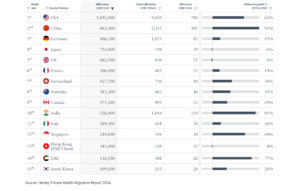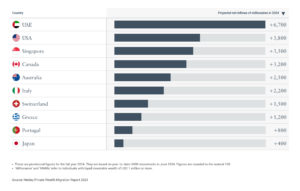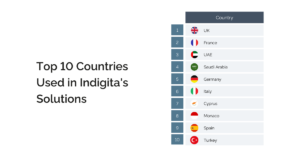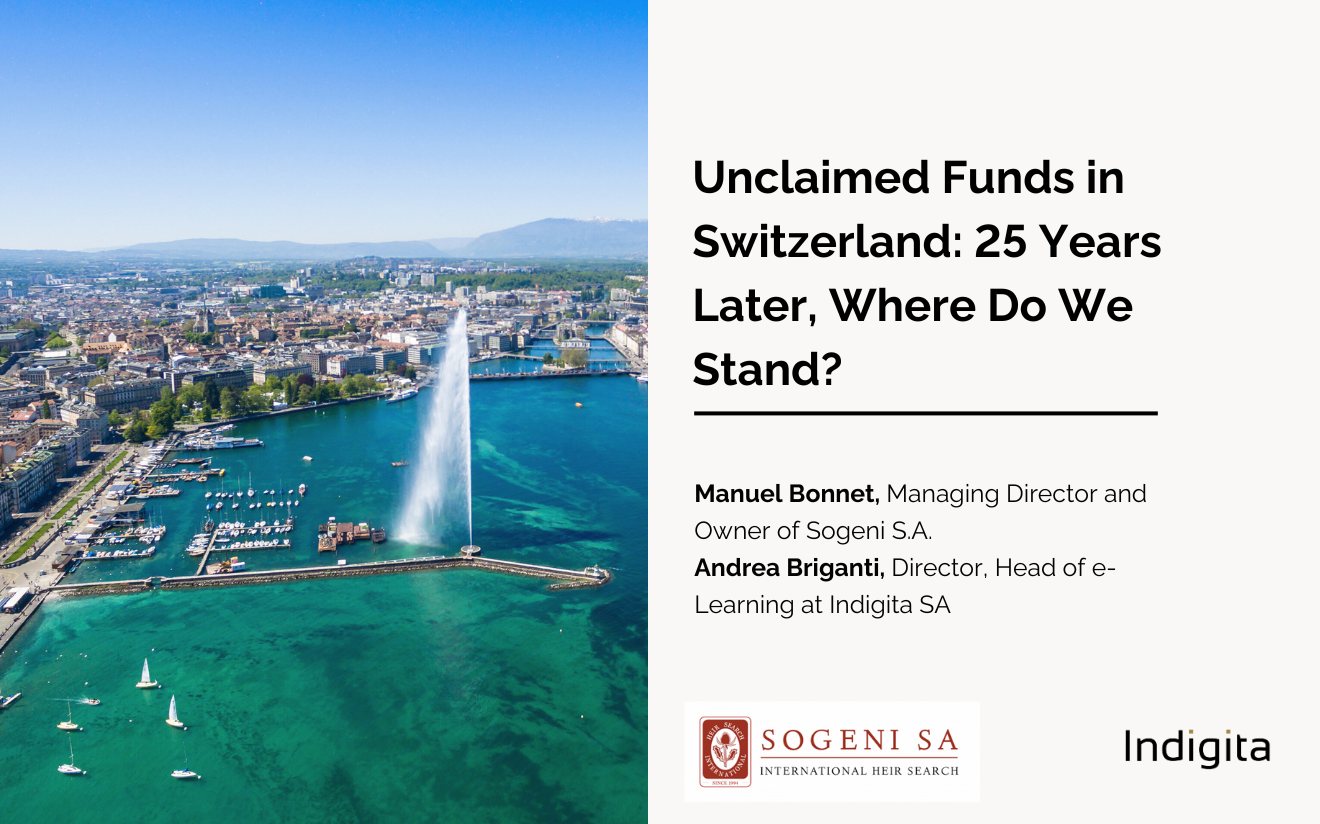Authored by Jacopo Zamboni, Managing Partner of Henley & Partners Switzerland AG and Achille Deodato, CEO of Indigita SA.
WEALTH MIGRATION: A GUIDE FOR PRIVATE BANKERS
Understanding where high-net-worth individuals are located and relocating is
crucial for banks to maintain client relationships.
Practitioners in the private banking world increasingly recognize the significance of global mobility for wealthy individuals. Statistics confirm this trend: from 2014 to 2024, the number of millionaires relocating more than doubled from 64,000 to 134,000 annually.
Two key catalysts, outlined below, have let to growing interest in this topic among private bankers, particularly in international private banking hubs such as Switzerland, Liechtenstein, Luxembourg, and Singapore.
Cross-border regulations and compliance
This factor is endogenous to the financial sector. Regulators require banks to comply with numerous rules that dictate engagement parameters based on client residence. As enforcing and monitoring compliance consumes resources, financial intermediaries must specialize in key markets in order to properly mitigate cross-border risks. Decisions about which markets to maintain or transition to legacy status depend not only on the size of existing business but also on potential growth, which is constrained by the number of wealthy prospects in each location.
Understanding where wealthy individuals are based and where they are moving drives strategy, making it essential to monitor population flows between countries.
Geopolitical and tax considerations
This second factor encompasses multiple exogenous catalysts. These factors can be summarized in one word: volatility, which is increasingly ‘priced in’ by both bankers and their clients.
Wealthy individuals relocate to jurisdictions where they perceive risks are minimized (taxation, proximity to conflicts) and opportunities maximized (education, favourable socio-economic environment). A recent example is the changes to the non-domiciled resident tax regime in the UK, which have triggered an exodus of millionaires to jurisdictions with more attractive tax structures.
A double-edged sword
While client relocation presents complexity for advisors, it also creates opportunity. Banks prepared to support clients during relocation, through in-house wealth planning departments or external providers, can ensure client retention and asset preservation.
For well-positioned banks, relocation becomes an ideal moment to reassess existing structures and investment strategies, and to demonstrate their ability to provide seamless cross-jurisdictional support for asset management and lending solutions. Swiss banks typically have an advantage over domestic banks in the countries clients are departing from.
Typical client questions, which private bankers should be prepared to answer in-house or have the appropriate partners to assist clients , include:
- How do I relocate to a specific country?
- Will my portfolio remain tax-efficient given my new residence?
- Will my trust structure function under new domestic laws?
- Which schools will best serve my children?
- Can the bank finance my new residence?
The charts below show which countries have positioned themselves optimally by minimizing the hurdles to relocation exemplified by the questions above.
Where the Wealthy are Located?
Global wealth centres remain concentrated in North America, Asia, and Western Europe. New York leads with 349,500 millionaires, followed by the Bay Area (305,700), Tokyo (298,300), Singapore (244,800), and London (227,000). What is notable is the growth rate differential, with some Asian cities showing remarkable gains over the past decade while certain traditional European centres have experienced slight declines.
Where the Wealthy are Relocating To?
High-net-worth individuals often serve as early indicators of wider societal and economic shifts. The UAE, the USA, and Singapore remain top destinations for relocating millionaires, with Canada and Australia rounding up the Top 5 countries in terms of projected net inflows last year. Key factors driving these choices include favourable tax regimes, quality of life, excellent education and healthcare systems, and attractive investment opportunities.
Relocation versus investment migration
Wealth migration figures show the difference between the number of high-net-worth individuals who relocate to a country and stay for longer than six months, and those who emigrate away from that country.
Another category is millionaires who obtain residence or citizenship rights in a country via investment migration as a diversification strategy, which does not necessarily require physical relocation (no change in tax residency). An extensive overview of this sector can be found in Investment Migration Programs 2025.
Where are Swiss banks focusing?
Based on research conducted by Indigita, the geographical markets on which Swiss private banks focus most intensely appear to be concentrated in a relatively traditional set of countries. These findings are drawn from cross-border compliance analyses performed by Swiss banks over the past 12 months.
At first glance, this may seem counterintuitive. One might expect Swiss private banks to closely follow global wealth migration trends, redirecting efforts toward fast-growing wealth hubs. Instead, they appear to maintain a strong focus on their historical client bases. This could be interpreted as a sign of strategic inertia; however, an alternative explanation lies in the increased regulatory complexity of these legacy markets, which has driven a surge in compliance checks and due diligence requirements.
Nonetheless, this raises an important question: are Swiss private banks directing their compliance efforts and commercial strategies toward the right markets of the future? As global wealth shifts toward new regions, particularly in Asia, the Middle East, and parts of Africa, an overreliance on traditional markets may lead to missed opportunities. Strategic realignment toward jurisdictions showing high net inflows of wealth could help ensure long-term competitiveness. Now more than ever, aligning compliance focus with future-oriented market potential will be key to staying relevant in the evolving landscape of international wealth management.
Conclusion
Wealth migration is not just a byproduct of geopolitical and economic shifts, it is a leading indicator of where opportunities will emerge next. Private bankers who actively monitor these trends and realign their strategies accordingly will be best positioned to retain clients, capture new ones, and drive sustainable growth.
Critically, aligning compliance focus with evolving wealth flows is no longer optional. As the data suggests, an overemphasis on legacy markets may reflect growing regulatory burdens rather than true growth potential. To remain competitive, banks must look beyond the familiar and pivot toward high-growth jurisdictions attracting new wealth.
By integrating global mobility insights into both commercial and compliance strategies, banks can turn the complexities of relocation into client loyalty, deeper relationships, and new business lines. In an era where agility and foresight are defining advantages, staying informed, globally aware, and adaptable will be essential for long-term success in wealth management.







